Planning a Trip to France
Dreaming of a trip to France? You're far from alone. France is Europe’s most popular tourist destination, with something for literally everyone … which makes planning a trip to France difficult and essential.
But you’re in luck. Our guide will help you organize your trip to the country everyone wants to visit.
Prime The Pump
Long before your trip, it’s always good to get excited about your destination.
To that end, read books and stories where France is a major character – F. Scott Fitzgerald’s Tender Is The Night, M.F.K. Fisher’s Serve It Forth, the short stories of Collette, the novels of Victor Hugo.
Watch some good French cinema – The 400 Blows or Day For Night. Listen to the late Francoise Hardy or Edith Piaf. Download Google Arts and Culture and fill up on the Impressionists.
And watch Emily in Paris by all means!
However you choose to get excited about visiting France, it won’t take much to get you itching to go.
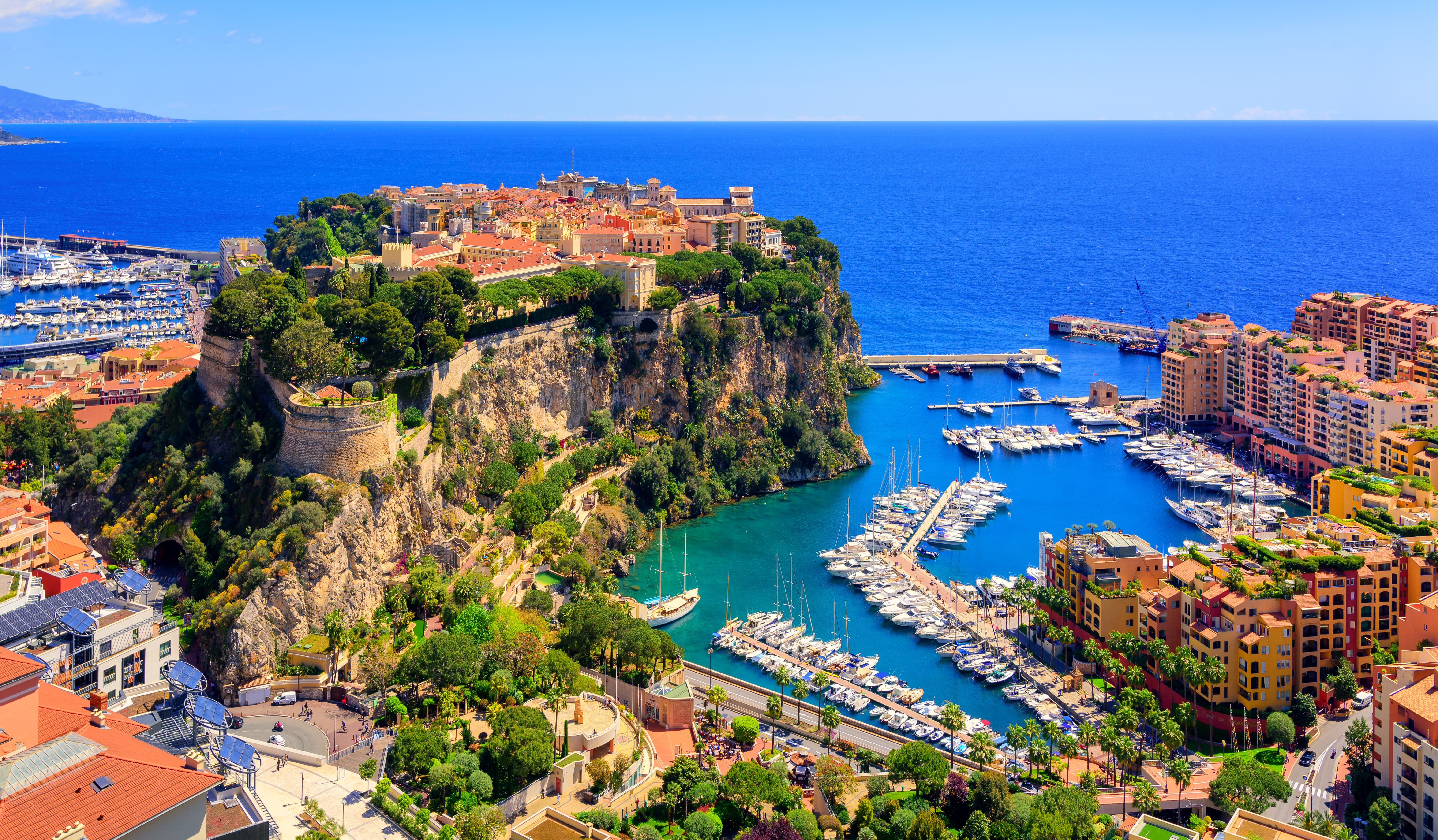
Decide When To Go
France is a year-round destination, but where you go and what you do will vary by the season. In general you can expect:
- Spring (March-May): Mild weather and blooming flowers – ideal for bike rides and garden walks. Paris, Provence, and the Loire Valley are especially lovely. A great time for river cruises and late-season skiing.
- Summer (June-August): Peak season. Prices (and temperatures) are sky-high. The French Riviera, beaches, and festivals like Bastille Day are crowded but worth it.
- Autumn (September-November): Fewer tourists and pleasant weather. Take wine tours in Bordeaux and Burgundy, and hit up country markets for fall produce.
- Winter (December-February): Deserted attractions and a magical holiday atmosphere. Ski in the Alps or cozy up in a Parisian café. Love museums? This is your time to visit.
Decide Where To Go And What To Do
As we said at the start, France has something for everyone, and once you start the process of figuring out where to go, you’ll discover how true that statement is.
Here’s a sampling of what we mean.
Food
Do you love food? Then you’ll love France.
France is the home of the Michelin Guide, the bible of fine dining, and home to some of the world’s best and most iconic restaurants – and they’re not all in Paris.
A self-drive food tour from France Just For You is a great option for gastronomes. Tours cover regions like Provence and the Loire Valley and can be customized with experiences like expert tours of gourmet markets and truffle hunting.
Otherwise, you may want to try to get into restaurants like:
- Le Jules Verne, Paris
- Paul Bocuse, Lyon
- L'Oustau de Baumanière, Provence
- Le Chantecler, Nice
- La Grand'Vigne, Bordeaux
- La Marine, Normandy
Art
Obviously the Louvre is on everyone’s list of the world’s top art museums. It even has the Mona Lisa, but don’t plan on getting close to it if you visit in the summer.
However, that’s just the tip of the art iceberg in France. There’s also:
- Musée d'Orsay, Paris, featuring Impressionist and Post-Impressionist masterpieces by Monet, Van Gogh, and Degas
- Centre Pompidou, Paris, the place to see modern and contemporary art by Picasso, Kandinsky, and Duchamp
- Musée de l'Orangerie, Paris, where you can see Monet's “Water Lilies” and works by Renoir, Matisse, and Picasso
- Musée des Beaux-Arts, Lyon, renowned for its collection of Egyptian antiquities
- Musée Fabre, Montpellier, a hidden gem with a great collection of European art
And even that’s just the tip of the iceberg. In France, fine art greets you at every turn.
Outdoor activities
Again, the choices are up to you. You can ski or hike two great mountain ranges – the Pyrenees and the Alps. You can bike through Provence. You can do water sports on the Riviera or on the lakes bordering Switzerland and Italy. You can walk around Paris for days.
And, sure, you can probably find someplace to play pickleball, if that’s what you really want to do.
History
A Les Mis fan? You can take a walking tour of revolutionary Paris that includes many of the sites mentioned in Les Miserables.
You can also take a tour of the house of Victor Hugo, tours of the D-Day battlefields at Normandy, tours of the World War I trenches at Verdun, tours of ancient Roman France … you get the idea.
If you have an historical itch regarding France, there’s a tour that can scratch it.
Special experiences
Again, whatever you want to do you can probably do in France in a way that’s memorable. Consider:
- Cooking classes: Classes range from croissant baking to macaron-making to full-course-meal prep.
- Wine tasting: The Tour de France of wine-tasting, anyone? You can go to the source, in Bordeaux or Burgundy, or plumb the depths of Paris’ wine cellars. It’s up to you.
- Festivals: The Cannes Film Festival, Bastille Day, and Carnival in Nice are just a few highlights.
- World Heritage Sites: France has 52 of them, from the Popes’ Palace in Auvignon to the Auvergne volcanoes. You choose.
(And if you visit in the fall, there’ll likely be tours of the Olympic sites as well.)
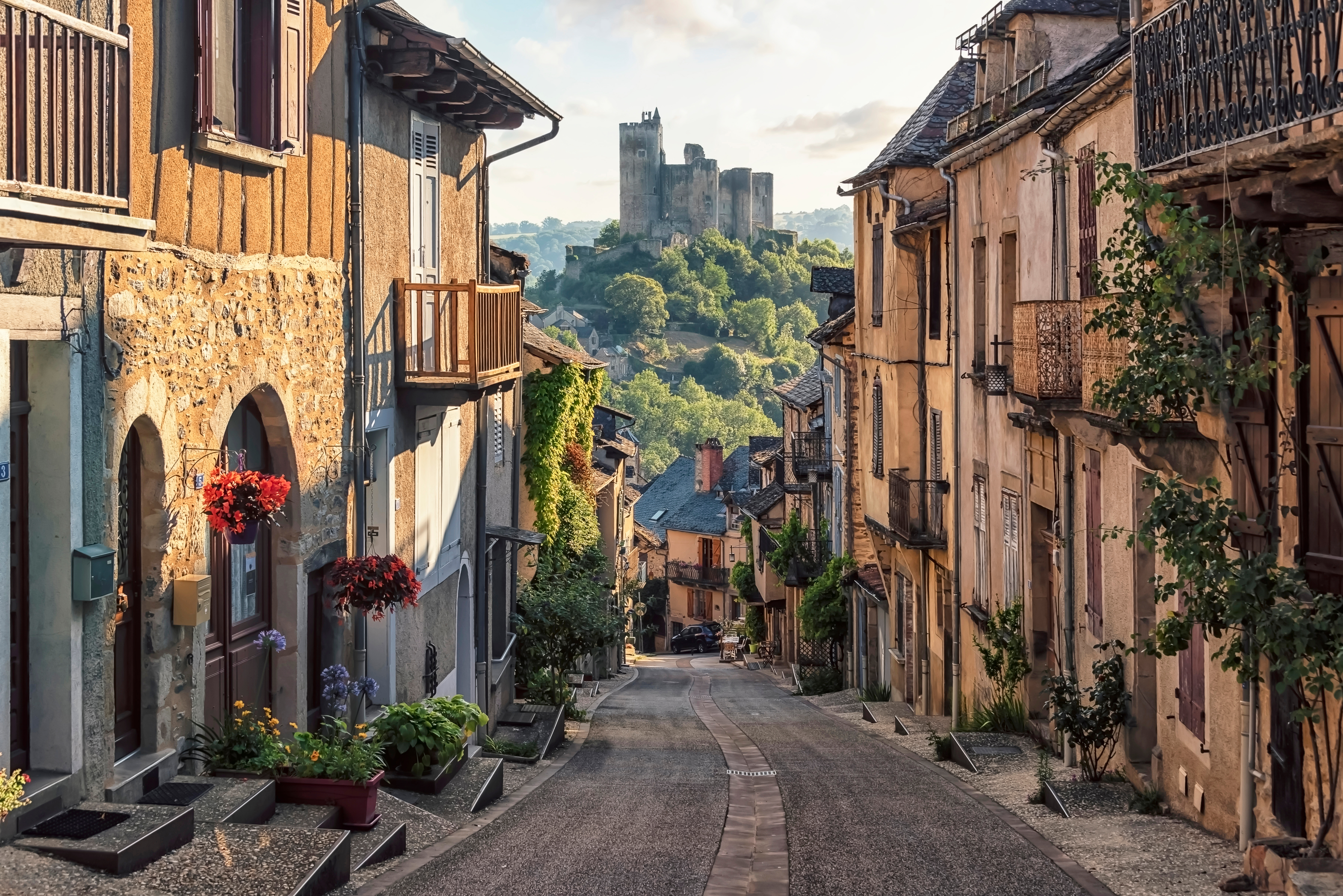
Gather Your Documents
Wow. Once you’ve figured all that out, pull together your documents, like:
- Passport: If it’s been a while since your last overseas trip you may need to renew your passport. Do it early. Your passport has to be valid for at least six months beyond your intended stay.
- Visa: U.S. citizens can be in France for up to 90 days without a visa. If you need more time than that (and we all do; we just can’t afford it), apply for a visa.
- Travel insurance: We’ll come back to this later. Suffice it to say you need it.
Guard Your Health
To protect your health when traveling in France:
- Vaccinations: You don’t need special vaccinations to visit France; just make sure your routine vaccines are up to date.
- Emergency numbers: Dial 112 for emergencies. If you have an Android phone, download the International SOS Assistance app.
- Health insurance: Chances are your U.S. health plan won’t cover you in France – but travel insurance with coverage for medical emergencies will.
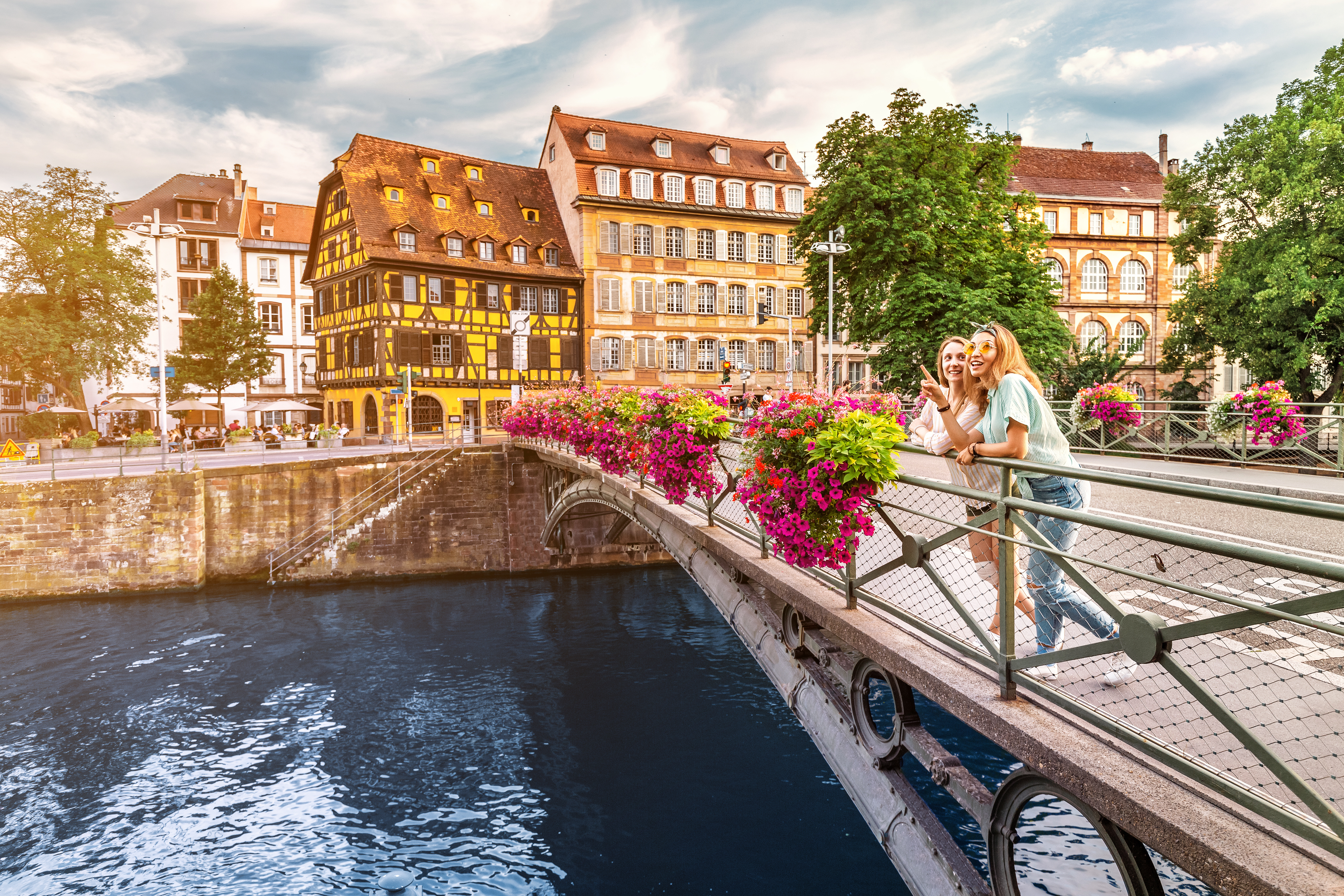
Figure Out How You’re Getting Around
If you’re on a tour, transportation is likely provided.
If you’re not on a tour, don’t worry – France has an extensive and efficient transportation network. You can feel safe taking:
- Trains: The TGV (tres grande vitesse, or high-speed train) connects major cities like Paris, Lyon, and Marseille. It's fast, convenient and relatively inexpensive.
- Public transportation: The buses, trams and metros found in most French cities are affordable and cover most areas.
- Car rentals: Renting a car is ideal for exploring the countryside. However, the country has toll roads and some cities have parking and traffic restrictions.
- Biking: Biking is so French! The country is extremely bike-friendly, even in the cities, with many dedicated bike paths and scenic routes that crisscross regions like the Loire Valley and Provence.
Choose Your Accommodations
One of the reasons France is so popular is that it has everything.
Accommodations are a perfect example. No matter how you like to lodge, France has lodgings for you. Consider:
- Hotels: From Parisian luxury hotels to charming boutique hotels in smaller towns to the humblest of establishments, there's a place for you to stay.
- Bed-and-breakfasts: These range from spare rooms to entire mansions, and are great for personalized service and local tips.
- Vacation rentals: An Airbnb in Paris is the quintessential European vacation rental, but in reality you can rent anything from a small room in a small town to an alpine ski chalet.
- Hostels: A great way to meet (mostly young) people, hostels are affordable and safe.
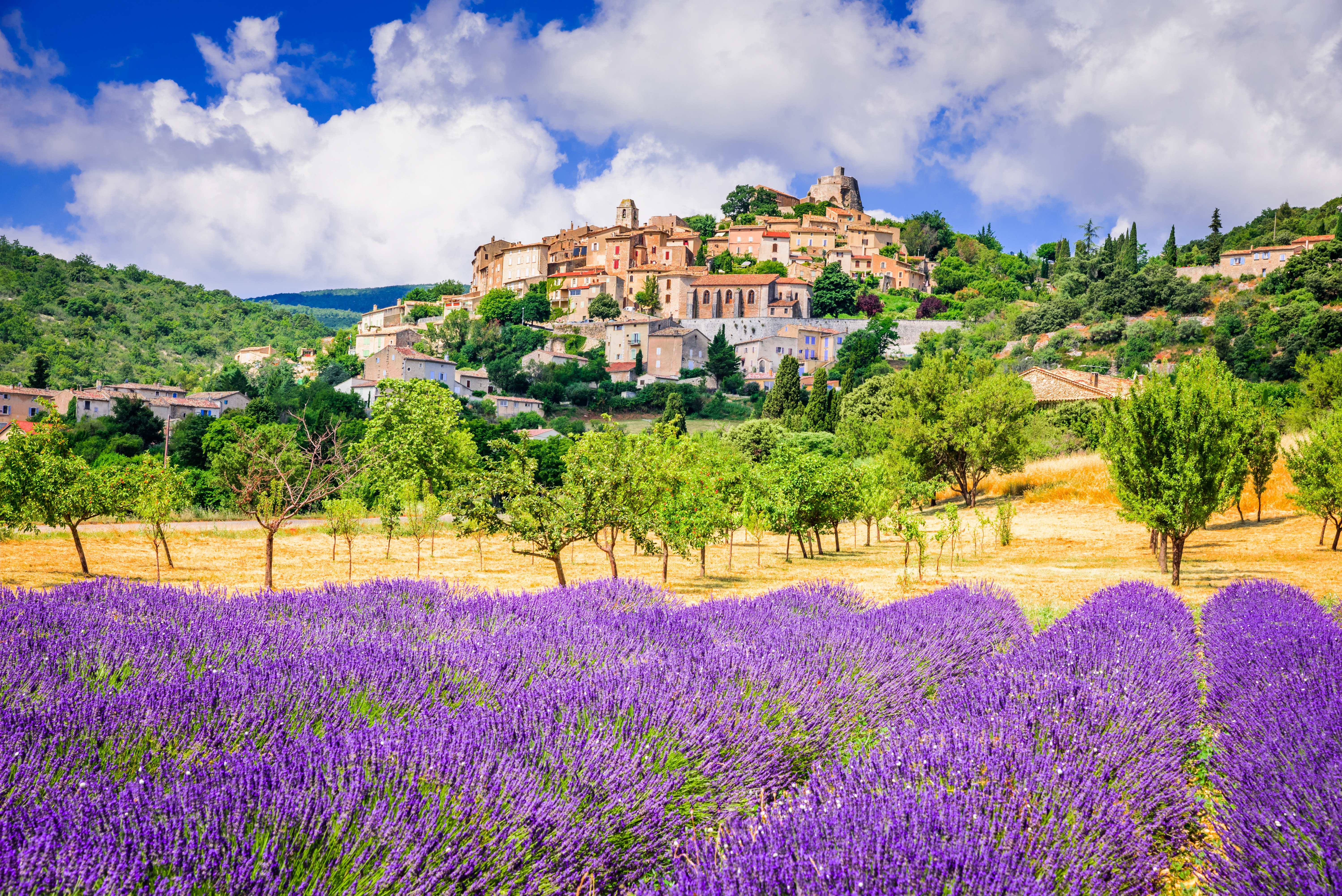
Understand The Culture
There’s probably not a lot that you don’t know about French culture, but it’s worth repeating anyway.
- Language: While the days of the surly French person resenting the American tourist are largely past, downloading Duolingo and practicing some simple French phrases goes a long way.
- Dining etiquette: The French take their meals seriously. Expect multiple courses and don’t rush. Tipping isn’t mandatory, but rounding up the bill is common.
- Shopping: Shops often close for lunch (noon to 2 p.m.) and on Sundays. Plan your shopping accordingly.
- Dress code: Don’t be a slob. The French value style and often dress more formally than in other countries.
Set A Budget
Unless you’re hitting the Olympics, seeing Taylor Swift or visiting Disneyland Paris you probably aren’t going to be buying a lot of big tickets when you visit France.
Still, the costs can add up fast, and bust your budget before you know it. Here’s how to get the most for your money:
- Flights: If you’re flexible, look for last-minute off-season flight deals. It doesn’t have to be 75 and sunny for you to have a great time in France.
- Accommodations: Prices vary by region and season. Book in advance for the best deals.
- Food: Find a pâtisserie for breakfast and a market for lunch, and then splurge on dinner. Or not. France offers so many ways to eat well inexpensively.
- Attractions: Many museums and attractions offer discounted or free entry on the first Sunday of the month. Look for city passes (like The Paris Pass) that include multiple sites.
- Transportation: Consider a Eurail Pass if you plan a lot of train travel. Take public transportation in cities.
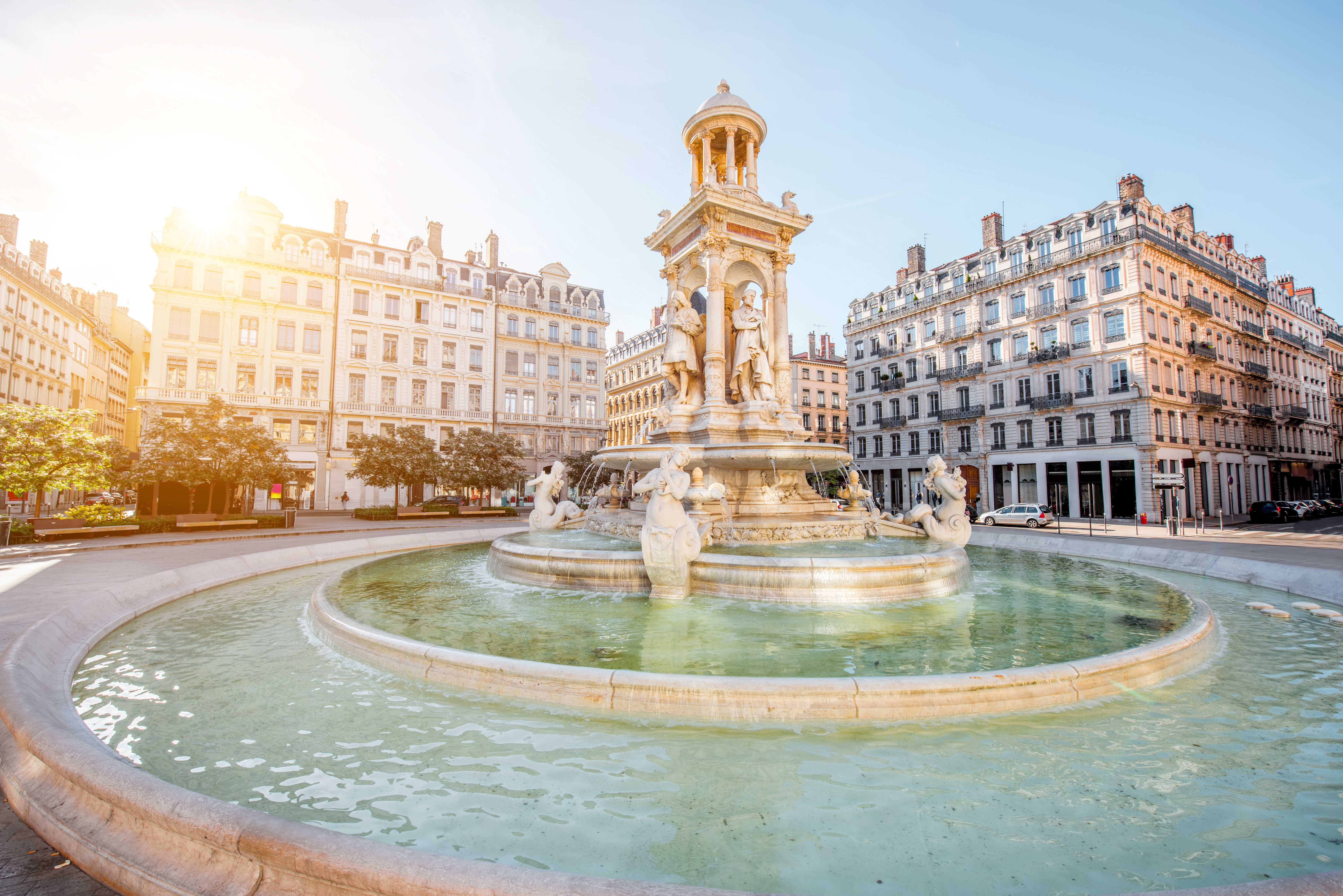
Get Travel Insurance
Travel insurance is a must-have for almost any trip to France.
Plans like ExactCare® from Berkshire Hathaway Travel Protection cover medical emergencies, trip cancellation, lost luggage, and more. The travel assistance included with BHTP plans can also help extricate you from travel jams.
Coverage from BHTP will help give you peace of mind as you explore France.
Final Tips
Here are some last-minute things to remember as you plan your vacation.
- Stay flexible: Research and plan an itinerary, but leave room for spontaneity. And don’t be afraid to go for it if some bargains come along and the stars align!
- Stay connected: Use our recommended apps for navigation, translation, and local tips. Consider an international phone plan or local SIM card.
- Pack smart: Pack versatile, stylish clothing that can be layered and comfortable walking shoes. Don’t forget adapters for your electronics.
If you do all that, you’re virtually guaranteed to have a great time on your vacation in France. Au revoir, bon voyage, and bon appetit.
And we’ll bet you’ll want to go back.
Questions About Travel Insurance?
Check out our online guide, "What Is Travel Insurance All About?" We've provided in-depth answers to all your travel insurance questions, starting with the basics.